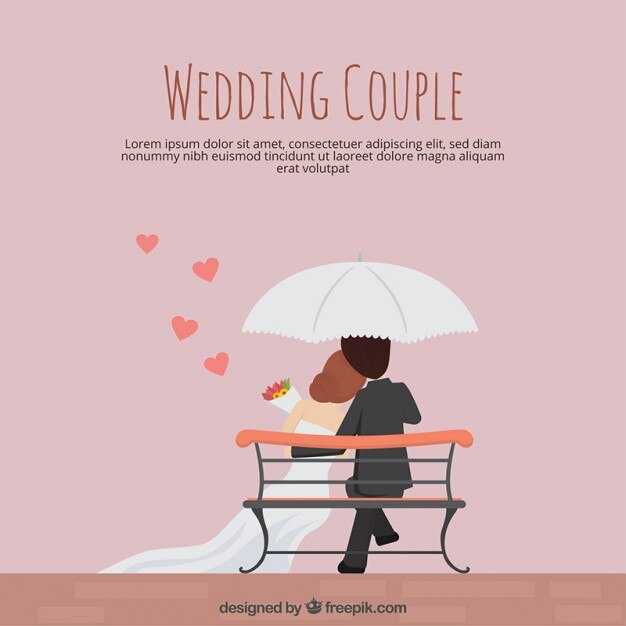Listen: marriage can sometimes feel even more isolating than single life, and it’s easy to be swept up in the emotions of the wedding day. We see the joy, the flawless smiles, the picture-perfect moments and we envy them — yet we rarely notice that, a few years on, there is roughly a fifty percent chance that deep loneliness will creep into what looked like the perfect marriage. This is important because many people feel pressure to tie the knot — whether for the first time or again — because they think their chance to start a family is slipping away or for some other urgent reason. Remember: time is on your side, even if it doesn’t feel like it. Rushing into marriage before you’re ready, committing to someone who isn’t a healthy match, failing to heal emotional wounds, not understanding why previous relationships ended, ignoring avoidance patterns, or, at the opposite extreme, not recognizing a tendency to people-please and overextend — all of these make it more likely that marriage will leave you lonelier than you were when single. You deserve much better than that. But many of us do ourselves a disservice and waste even more time by not becoming the kind of person a healthy partnership requires: emotionally mature, self-aware, imperfect but committed to healing. That means learning what a healthy relationship needs, practicing boundaries, building self-worth and self-respect, knowing how to respond when someone neglects you, and — just as crucial — choosing a partner who offers mutual respect and genuine vulnerability. Waiting for that kind of person is worth it; otherwise you may only end up convincing yourself the next relationship will be the fix. How do you know you’re ready? It feels fundamentally different: you don’t need this person to be whole — you’re complete without them — but you want them because they add something beautiful. They are not your entire world; they complement your life. They are your partner and your friend, and you feel emotionally safe with them, not drained or confused. Immature love leaves you exhausted and uncertain; mature love leaves you encouraged, respected, valued, seen and appreciated. Mature love allows you to be fully yourself without fear of abandonment — if someone expects you to silence or bury your feelings to keep them, that’s not a person worth staying with. Many people have never known that safety or freedom, especially if they grew up in toxic or abusive environments where love had to be earned, voices were silenced, or feelings were chronically dismissed. If you don’t know what real love looks like, find out — learn what’s truly best for you — because you deserve the kind of love that honors and supports you.
Concrete signs you’re ready for a healthy marriage
- You can tolerate being alone and maintain your identity, interests, and friendships outside the relationship.
- You’ve reflected on past relationship patterns and can name what went wrong and what you need to do differently.
- You can accept your partner’s imperfections and communicate needs without guilt or panic.
- You’re able to set and hold boundaries consistently — emotionally, physically and financially.
- You can have tough conversations, ask for help, and accept feedback without shutting down or attacking.
- You feel excited about partnerships that add to your life rather than complete it; intimacy is chosen, not required for survival.
Practical steps to take before saying “I do”
- Have honest conversations about values, money, children, work-life balance, religion, extended family involvement, and long-term goals. Misaligned core values are a common source of loneliness and resentment.
- Practice conflict skills: use “I” statements, take time-outs if conversations escalate, and create a plan for repair attempts after fights.
- Try premarital counseling or relationship education to surface blind spots in a safe space. Therapists can teach communication tools and spot red flags you might miss.
- Slow down major life decisions if possible. Use the engagement period to test compatibility in everyday life — not just during vacations or special occasions.
- Maintain independence: keep friends, hobbies, and financial awareness. Interdependence works best when both people retain healthy autonomy.
- Work on unresolved trauma or attachment wounds with a therapist so past pain doesn’t get projected onto your partner.
Red flags that predict loneliness or harm in marriage

- Consistent stonewalling, contempt, or belittling during conflict.
- Emotional unavailability: a partner who cannot or will not share feelings, avoid vulnerability, or dismisses your needs.
- Patterns of gaslighting, controlling behaviors, or isolation from friends and family.
- Unaddressed addiction, repeated secrecy, or financial deceit.
- Pressure to marry quickly, especially when coupled with minimizing your concerns or refusing counseling.
- Lack of remorse or change after boundary violations.
Daily habits that prevent loneliness and grow connection
- Schedule weekly check-ins: discuss feelings, frustrations, and appreciations without multitasking.
- Prioritize small rituals of connection — shared meals, walks, or a nightly 10-minute debrief.
- Express appreciation regularly; gratitude builds safety and counters drift.
- Agree on respectful conflict rules ahead of time (no name-calling, no stonewalling, time-outs allowed).
- Keep up self-care and personal interests so you bring your full, interesting self into the relationship.
When to seek help — and when to leave
If loneliness stems from avoidable problems (poor communication, unmet needs) and both partners are willing to learn and change, couples therapy, books on relationships, and workshops can help. If your partner refuses to acknowledge harm, repeatedly violates boundaries, or if there is any physical, sexual, or severe emotional abuse, prioritize your safety. Create a safety plan, reach out to trusted friends or family, and contact local domestic violence resources or emergency services when necessary. Leaving an unsafe relationship is often complicated; get support from professionals and advocates who can help with planning and protection.
Финальная заметка
Marriage should not be a rescue mission or a way to prove worth. It’s a partnership that requires two people who are willing to do the work — on themselves and together. Waiting, learning, and healing before you commit can save you years of loneliness. If you’re uncertain, slow down, seek counsel, and center your decisions on emotional safety, mutual respect, and honest intimacy. You deserve a marriage that keeps you seen, heard, and loved — not a relationship that makes you lonelier than you were before.


 Брак может быть ОЧЕНЬ одиноким.">
Брак может быть ОЧЕНЬ одиноким.">

 Что делает ОТЛИЧНЫЕ отношения? || Как построить ОТЛИЧНЫЕ отношения">
Что делает ОТЛИЧНЫЕ отношения? || Как построить ОТЛИЧНЫЕ отношения">
 Как реагировать на грубые комментарии, сохраняя спокойствие">
Как реагировать на грубые комментарии, сохраняя спокойствие">
 Мой партнёр НЕ хочет идти в консультирование.">
Мой партнёр НЕ хочет идти в консультирование.">
 Скрытая связь, которая навсегда связывает избегающих с одним человеком | Джордан Питерсон | Мотивационная речь">
Скрытая связь, которая навсегда связывает избегающих с одним человеком | Джордан Питерсон | Мотивационная речь">
 Есть что-то привлекательное в партнерах, которые разочаровывают">
Есть что-то привлекательное в партнерах, которые разочаровывают">

 You CAN’T have Intimacy without THIS.">
You CAN’T have Intimacy without THIS.">
 What Happens to Avoidants When You Stay Silent Longer Than They Expected | Mel Robbins motivational">
What Happens to Avoidants When You Stay Silent Longer Than They Expected | Mel Robbins motivational">
 Reciprocated Validation">
Reciprocated Validation">
 Why You Become Anxious & Clingy: The Avoidant’s ‘Interest Trap’ Explained.">
Why You Become Anxious & Clingy: The Avoidant’s ‘Interest Trap’ Explained.">